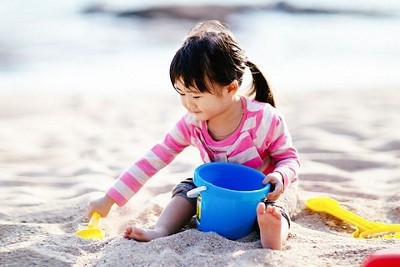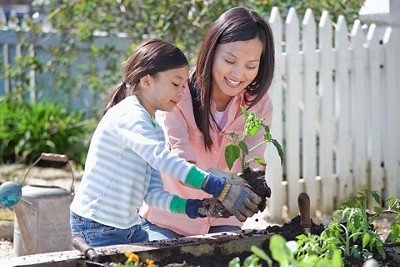Breastmilk is the best for babies. The World Health Organisation recommends exclusive breastfeeding for the first six months of life. Unnecessary introduction of bottle feeding or other food and drinks will have a negative impact on breastfeeding. After six months of age, infants should receive age-appropriate foods while breastfeeding continues for up to two years of age or beyond. Consult your doctor before deciding to use infant formula or if you have difficulty breastfeeding.
Dirt & Immunity

Playing outside is healthy
Whether it’s playing in the field, in the mud or at the beach, your child will be exposed to germs. Your first instinct may tell you that all germs are generally bad, however do you know that most germs help stimulate your child’s immune system without being harmful? Exposing your little one to microbes in the environment will give him a stronger and more robust immune system.
Let them play with dirt!
Letting your child play in the mud may sound like something you would want to avoid, but scientists believe that without exposure to dirt and germs early in life, the immune system will not learn how to control its reaction to everyday invaders such as dust and pollen. So, do not be afraid to let them play with dirt to build up the immunity.

Vitamin D supports the immune system
While playing outside, your child will be exposed to sunlight, which helps their body to generate vitamin D. Vitamin D plays an important role in the development of strong bones and teeth, in addition to supporting the immune system and normal muscle function.
Outdoor activities to help support the immune system
- Playing with sand and water
- Collecting nature items, such as branches, flowers, and pinecones
- Visiting the petting zoo
- Try throwing leaves in the air and catching them!

Connect with our team of experts
We provide advice and support for you on your parenthood journey


